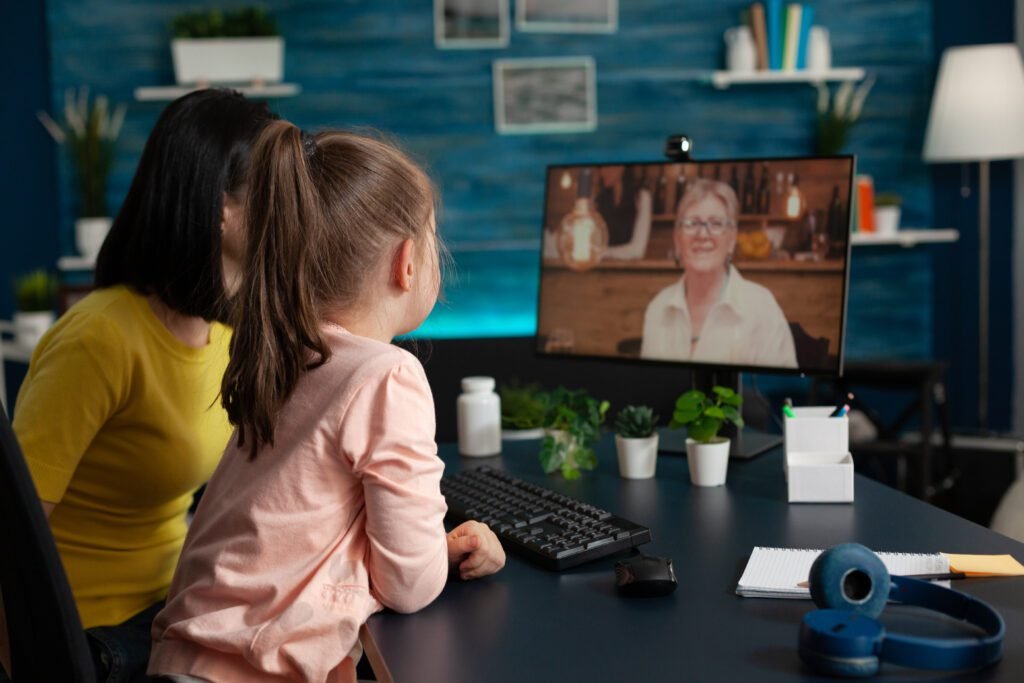Children who experience trauma often face emotional, behavioral, and developmental challenges that can deeply impact their lives. Parents play a vital role in helping their child heal, yet many families struggle to find accessible and consistent support. Telehealth counseling has emerged as a practical solution, offering professional guidance directly in the home environment. With the right approach, parents can learn to reinforce coping strategies, reduce emotional distress, and create a sense of safety for their child.
Understanding Trauma in Children
Trauma in children can arise from various experiences including abuse, neglect, accidents, loss, or witnessing violence. Symptoms may include withdrawal, sudden mood swings, sleep disturbances, or difficulty concentrating. These signs can be misunderstood as disobedience or immaturity when in reality they are responses to overwhelming stress. Recognizing trauma as a health issue rather than a behavioral problem sets the foundation for effective support.
What Makes Telehealth Counseling Valuable for Trauma Care
Access to therapy is often limited by location, scheduling conflicts, or transportation barriers. Telehealth counseling removes these obstacles by connecting families with licensed mental health professionals virtually. This model not only increases availability but also reduces stigma, since children can receive care in the comfort of their homes. Studies have shown that online sessions can be as effective as in-person therapy for addressing trauma, especially when parents are actively involved.
Building a Supportive Home Environment
Healing requires consistency. Parents can strengthen the impact of telehealth sessions by creating a calm and predictable routine at home. Simple practices such as setting aside time for open conversations, encouraging physical activity, and limiting exposure to distressing media help children feel more secure. Counselors often provide exercises or coping techniques during sessions, and parents should practice these strategies with their child between appointments to reinforce progress.
The Parent’s Role During Telehealth Sessions
Parents often wonder how much involvement is appropriate during online counseling. While every case is unique, most therapists encourage parents to participate in at least part of the session. This collaboration helps parents understand what their child is working on and how they can provide support after the session ends. In some cases, the therapist may work directly with the parent to address their own stress, since caregiver wellbeing strongly influences a child’s recovery.
Communication Strategies That Promote Healing
Children coping with trauma need reassurance that they are heard and understood. Instead of pressing for details about traumatic events, parents should focus on validating feelings. Phrases like “I can see that was hard for you” or “You are safe with me” can make a significant difference. During telehealth counseling, therapists often model these responses so parents can practice them in real time. Over time, this approach teaches children that it is safe to share emotions without fear of judgment.
Overcoming Challenges with Telehealth
While telehealth counseling provides many benefits, families may encounter challenges such as limited internet access, lack of privacy, or a child’s initial resistance to virtual sessions. Parents can address these obstacles by setting up a quiet space with minimal distractions, and using headphones for confidentiality. Many therapists also offer creative online tools such as virtual games, drawing activities, or relaxation exercises that keep children engaged.
How Telehealth Counseling Empowers Families
The strength of telehealth lies not only in professional intervention but also in empowering parents to become partners in the healing process. By observing therapeutic techniques, parents gain practical skills they can apply daily. This shared learning experience helps children see that recovery is a family effort, not something they must handle alone. Over time, families often report improved communication, stronger bonds, and increased resilience.
Long-Term Benefits of Early Support
Children who receive trauma counseling early are more likely to develop healthy coping mechanisms, perform better academically, and build trusting relationships. Telehealth expands opportunities for timely intervention, which is critical since untreated trauma can persist into adulthood. Parents who actively support the process set the stage for lasting growth and wellbeing.
When to Seek Additional Help
Although telehealth counseling is highly effective, some children may require in-person services for more intensive care. Warning signs such as persistent self-harm behaviors, extreme aggression, or severe withdrawal should prompt parents to consult with a pediatrician or seek specialized trauma programs. Telehealth providers can also guide families toward appropriate resources when higher levels of care are needed.
Final Thoughts
Supporting a traumatized child is never easy, but telehealth counseling gives families new ways to access expert care while remaining involved every step of the way. By creating a supportive home environment, participating in sessions, and applying learned techniques, parents can help their child move toward healing. With consistency and patience, telehealth counseling offers not just recovery but also renewed hope for both children and their families. To begin this process, parents can fill out our new client inquiry form and take the first step toward professional guidance and lasting support.
Frequently Asked Questions About Telehealth Counseling for Traumatized Children
1. What is telehealth counseling for children?
Telehealth counseling is a form of therapy provided through secure video sessions where licensed mental health professionals work with children and families to address emotional, behavioral, and trauma-related concerns.
2. Can telehealth counseling help a child who has experienced trauma?
Yes. Research shows that telehealth counseling can be as effective as in-person therapy in supporting children through trauma. It helps children build coping skills while giving parents tools to provide ongoing support at home.
3. How do parents participate in telehealth counseling sessions?
Parents may join sessions fully or partially depending on the therapist’s approach. They are often encouraged to learn strategies, observe techniques, and support their child between sessions.
4. Is telehealth counseling safe and private for children?
Absolutely. Licensed therapists use secure, HIPAA-compliant platforms. Parents can help by setting up a quiet, confidential space and using headphones if needed.
5. What types of trauma can be addressed with telehealth counseling?
Telehealth counseling can support children dealing with abuse, neglect, grief, bullying, accidents, natural disasters, or other emotionally distressing experiences.
6. How can parents prepare their child for a telehealth session?
Parents should explain what to expect, create a calm environment, reduce distractions, and reassure their child that the therapist is there to listen and help.
7. What if my child struggles to stay engaged during online sessions?
Therapists often use creative tools like games, art, and relaxation exercises to keep children engaged. Parents can support by encouraging short breaks and positive reinforcement.
8. How long does it take for a child to benefit from telehealth counseling?
Progress varies. Some children show improvement within weeks, while others may need longer-term support. Consistency and parental involvement greatly influence outcomes.
9. How do I start telehealth counseling for my child?
Parents can begin by contacting a licensed provider. The first step with our practice is to fill out our new client inquiry form, which allows us to match your child with the right therapist.



